Plenary Speakers
-
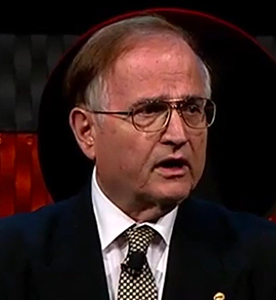
Professor Nicholas A. Peppas is an internationally known biomedical/chemical engineer, nanotechnologist and biomaterials scientist whose research contributions, innovations, inventions have led to 20 medical/pharmaceutical products and have contributed to the improvement of the quality of life of 800 million patients worldwide.
A native of Athens, Greece, Peppas is an elected member of the US-National Academy of Engineering, Academy of Medicine, American Academy of Arts and Sciences, Academy of Inventors, Academia Europaea, International Biomedical Academy, Canadian Engineering Academy, Indian National Engineering Academy, Chinese Academy of Engineering, Korean Academy of Science Technology, National Academy of France, Royal Academy of Spain, Academy of Athens, Greece, Academy of Romanian Scientists and Academy of Texas. He has served as a Visiting Professor in the Universities of Geneva, Paris-Sud, Santiago de Compostela. Madrid, Lisbon, Parma, Pavia, Napoli, Hecettepe/Ankara, Athens, Berlin, Hebrew University of Jerusalem, Hoshi University/Tokyo, Nanyang University/Singapore, Sichuan University, Peking Medical College.
Peppas is a distinguished professor in Biomedical Engineering, Chemical Engineering, Pediatrics, Surgery and Pharmacy at the University of Texas at Austin. His group has developed numerous biomaterials for medical devices and drug delivery systems for oral, buccal, sublingual and gastrointestinal delivery of drugs, peptides and proteins. One of the most published scientists in the world, he has 37 books, 1,650 publications. Cited in more than 200,000 references, Peppas is the inventor of numerous issued/pending, US/international patents and the founder of 3 start-up companies.
Honored by 170 Awards including NAE Founders Award, NAM Adam Yarmolinsky, Pharmaceutical Global Leader Award, Natta Award, Italy. Peppas holds a D.Eng. from NTU Athens, a ScD. from MIT and is the recipient of 13 honorary doctorates and professorships from France, Spain, Italy, Belgium, Greece, Slovenia, Romania and China.Molecular and cellular aspects of patient therapy using advanced intelligent systems
Advanced solutions of a number of biomedical engineering problems require that cellular and biological engineering converge with nanotechnology, advanced biomaterials and molecular biology to be used in a synergistic way to achieve targeted, effective vehicle for disease treatment. Cellular and molecular engineering play an important role in this effort. Engineering the molecular design of intelligent gels/biomaterials by controlling structure, recognition and specificity is the first step in coordinating and duplicating complex biological and physiological processes. Recent developments in siRNA and protein delivery have been directed towards the preparation of targeted formulations for protein delivery to specific sites, use of environmentally-responsive polymers to achieve pH- or temperature-triggered delivery, usually in modulated mode, and improvement of the behavior of their mucoadhesive behavior and cell recognition. We address certain aspects of the molecular basis of the design and synthesis characteristics of novel crosslinked networks capable of protein release as well as artificial molecular structures capable of specific molecular recognition of biological molecules. Molecular imprinting and micro-imprinting techniques, which create stereo-specific three-dimensional binding cavities based on a biological compound of interest can lead to preparation of biomimetic materials for intelligent drug delivery, drug targeting, and tissue engineering. In addition, we discuss certain molecular and modeling aspects of our work and we stress the future of the field in view of advances in computtional methods and the advent of artificil intelligence.
Keywords : cellular engineering, intelligent biomaterials, biomimeic systems -
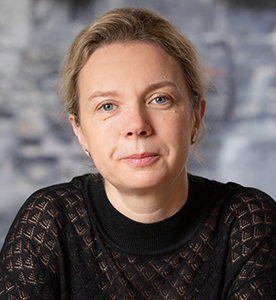
Pamela Habibovic is Professor of Inorganic Biomaterials at Maastricht University, the Netherlands.
Since February 2022, she holds the position of Rector of Maastricht University. Habibovic was a founding partner of MERLN Institute for Technology-Inspired Regenerative Medicine, established in 2014, and Chair of MERLN’s Department for Instructive Biomaterials Engineering. Between 2019 and 2022, she was the Scientific Director of MERLN.
Initially trained as a chemical engineer, in 2005, Habibovic obtained a PhD degree from the University of Twente, the Netherlands on the topic of materials for biomedical applications. Following postdoctoral research at Children’s Hospital Boston and McGill University, in 2008, she started her research group at the University of Twente. In 2014, she moved to Maastricht University. The main focus of her research is on synthetic bone graft substitutes, bioinorganics, nanomaterials for theranostics in regenerative medicine and high-throughput approaches in biomaterials research. For her research she received prestigious Veni, Vidi, Aspasia and Gravitation grants of the Dutch Research Council NWO, among other external research funds. She served as the President of the European Society for Biomaterials between 2017 and 2021 and as an Associate Editor of the RSC journal Biomaterials Science between 2019 and 2022. In 2017, she received the Jean Leray Award of the European Society for Biomaterials and in 2021 she was elected a Fellow of the Royal Society of Chemistry. She has published over 100 peer-review articles on the topic of biomaterials and regenerative medicine.Regeneration on chips and chips for regeneration: using microtechnology to advance the field of biomaterials-driven regenerative medicine
Regenerative medicine therapies based on synthetic biomaterials are becoming increasingly attractive as an alternative to the more complex and expensive strategies based on tissue, cells or growth factors. Nevertheless, to develop biomaterials that are capable of spatiotemporally controlling physiological processes, a new set of tools is needed for design and fabrication of biomaterials and for studying their interactions with the biological system. In this lecture, a number of such tools will be discussed using biomaterials for musculoskeletal applications as an example. These include the use of micro- and nanotechnology to independently design individual properties of biomaterials, the application of microfluidics to increase throughput of production and complexity of screening of material-cell/tissue interactions and on-chip models to study biomaterial-driven regenerative processes. Future research directions towards making the latter in vitro models into implantables for regenerative medicine will also be discussed.
Keywords : biomaterials, musculoskeletal regeneration, microtechnology -
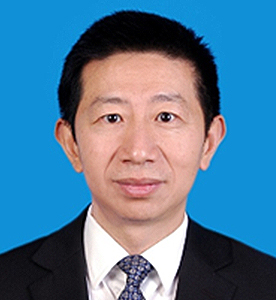
Prof. Yunbing Wang is the Director of National Engineering Research Center for Biomaterials of China, Dean of College of Biomedical Engineering of Sichuan University, and Vice President of Chinese Society for Biomaterials. His work has been focused on the research and application study of in-situ cardiovascular tissue repair and regeneration based on bioresorbable polymeric materials and devices with more than 200 scientific papers published, more than 500 patents issued/filed, and more than 100 invited presentations made. His research has been transformed into a variety of commercialized cardiovascular implantable devices and saved thousands of lives in China and abroad, including the world's first commercialized bioabsorbable occluder for the treatment of congenital heart disease which provides temporary occlusion and induces in situ tissue regeneration to solve the problem of traditional cardiac occluders, as well as the first commercialized bioabsorbable vascular stent. He developed a self-expanding transcatheter pulmonary valve through collaboration with company, which got CE approval in April 2022 and Chinese NMPA approval in July 2022. Some of his achievements were specifically reported by The Economist in 2022 and Nature in 2019 respectively. He was the First prize winner of the 2021 Technology Invention Award of the Ministry of Education of China.
In addition to his contribution in basic research and application in cardiovascular biomaterials and devices, he has demonstrated excellence in teaching and has supervised about 100 graduate students.Minimally Invasive Interventional Cardiovascular Materials and Devices
Cardiovascular diseases have become the leading cause of death worldwide. Safe and efficient treatment is critical which strongly relies on the utilization of implantable cardiovascular devices and relevant materials, including vascular stents, artificial heart valves, cardiac occluders, vascular grafts and injectable hydrogels for heart failure. This talk will focus on the advanced techniques we developed in implantable cardiovascular materials and devices, including the first approved bioresorbable transcatheter ventricular septal defect (VSD) occluder in the world in 2022 for the treatment of congenital heart disease, the first approved bioresorbable patent foramen ovale (PFO) occluder worldwide in 2023 for the treatment of cardioembolic stroke, the self-expanding pulmonary valve replacement system with approval in both Europe and China in 2022, and the minimally invasive interventional transcatheter hydrogel injection system for the treatment of heart failure in clinical trial since 2021, etc.
We developed materials with good biocompatibility, tunable biodegradability, enhanced tissue repairing and regeneration capacity, along with functional coatings that can provide anti-coagulation, anti-calcification, anti-inflammation, and anti-infection properties. Representative outcomes include: 1) tailored design of recombinant humanized collagen that possess not only enhanced tissue repairing and regeneration capability, but also dramatically decreased thrombogenicity; 2) double bond cross-linking technique for bioprosthetic heart valves (BHVs) with enhanced anti-calcification and endothelialization potency; 3) functional coatings that mimic endothelial cell function, cell membranes or extra cellular matrix for cardiovascular tissue repair/regeneration.
Our further study will focus on the following aspects: 1) bioresorbable cardiac occluders and stents with enhanced tissue regeneration function; 2) artificial heart valves with improved biosafety and durability; and 3) injectable hydrogels with increased tissue regeneration capability for heart failure therapy. With innovations in cardiovascular material and device development, more advanced treatment options will be available to elevate cardiovascular disease treatment to a new level.
Keywords : Cardiovascular material and device, Cardiac occluder, Artificial heart valve -
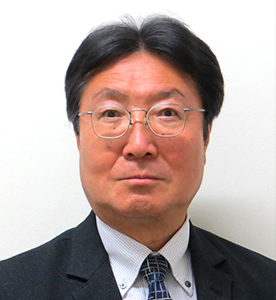
Dr. Takao HANAWA is a Council Member of the Science Council of Japan since 2020 and a Fellow of The International Union of Societies for Biomaterials Science and Engineering (IUSBS). He has also positions as Professor of Division of Materials and Manufacturing Science, Graduate School of Engineering, Osaka University and Professor of Center for Advanced Medical Engineering Research and Development, Kobe University. He was Professor of Department of Metallic Biomaterials, Institute of Biomaterials and Bioengineering, Tokyo Medical and Dental University, Japan, since 2004 and has retired 2023. He was once presidents of the Japanese Society for Biomaterials and Japanese Society for Dental Materials and Devices. He received his Ph.D. from Hokkaido University at 1989 and Tohoku University at 1998. He has experienced as Assistant Professor in Hokkaido University, Associate Professor in Tokushima University, and Deputy-in-General of Biomaterials Research Center, National Institute for Materials Science (NIMS). He has developed new metallic biomaterials such as zirconium alloys showing low magnetic susceptibility to decrease MRI artifact and several surface treatment techniques. Recently micro-arc oxidation process to add dual-function to titanium and nano-topography to accelerate the differentiation of stem cells by femto-second laser. In addition, interface reaction between titanium and living tissues is a life work of him, then near recently principle of the excellent biocompatibility of titanium has been elucidated from the viewpoint of electronic band structure of the passive film. He has published 312 original research papers and 106 review papers. His Scopus h-index is 51 at present.
Research and development of metallic biomaterials: central player of medical devices
Many medical devices made of metals have been substituted by those made of ceramics and polymers during the last half century because of innovation in ceramics and polymers and their excellent biocompatibility and biofunction. In spite of this situation, over 70% of surgical implant devices, especially over 95% of orthopedic implants, still consist of metals due to large fracture toughness and durability of metals.
Research and development of metallic biomaterials can be classified as follows: (1) exploration and production of new alloy, (2) development of new manufacturing process (additive manufacturing techniques are classified here), (3) development of new surface treatment and surface modification technology, (4) development of surface morphology control technology, and (5) evaluation of mechanical properties, corrosion resistance, safety, biological property, remaining their excellent mechanical property.
In this lecture, the above items will be explained while showing actual examples of research and development of metallic biomaterials as follows with the problem and future prospect: the development of new alloys (MRI-compatible Zr alloys with low magnetic susceptibility and high entropy biomedical alloy), new manufacturing process (severe deformation of Ti alloy for dental narrow implant and creative application of additive manufacturing), immobilization of biofuctional molecules to inhibit bacterial and and platelet adhesion, surface treatment to add dual functions (bone formation and bacterial property), fabrication of cyclic nano/micro patterns to control differentiation of stem cells, and characterization of electronic structure of the passive film on CP Ti to elucidate the principle of excellent biocompatibility that may be essential to better understand the interface phenomena between materials and host bodies using materials informatics (MI) and materials digital transformation (material DX), because all biological and tissue reactions start from an electronic transfer of the surface.
The deep discussion on the above will enhance the understanding of the essence of metallic biomaterials.
Keywords : Metals, medical device, durability -
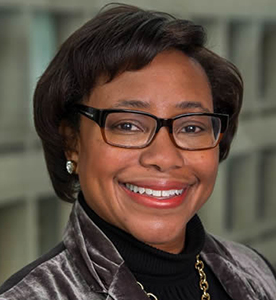
Paula T. Hammond is Institute Professor at the Massachusetts Institute of Technology and the Head of the Department of Chemical Engineering. She is a member of MIT’s Koch Institute for Integrative Cancer Research, the MIT Energy Initiative, and a founding member of the MIT Institute for Soldier Nanotechnology. The core of her work is the use of electrostatics and other complementary interactions to generate functional materials with highly controlled architecture. Her research in nanomedicine encompasses the development of new biomaterials to enable drug delivery from surfaces with spatio-temporal control. She also investigates novel responsive polymer architectures for targeted nanoparticle drug and gene delivery, and has developed self-assembled materials systems for electrochemical energy devices.
Professor Paula Hammond was elected into the National Academy of Science in 2019, the National Academy of Engineering in 2017, the National Academy of Medicine in 2016, and American Academy of Arts and Sciences in 2013. She is one of only 25 distinguished scientists elected to all three national academies. She won the ACS Award in Applied Polymer Science in 2018, and she is also the recipient of the 2013 AIChE Charles M. A. Stine Award, which is bestowed annually to a leading researcher in recognition of outstanding contributions to the field of materials science and engineering, and the 2014 AIChE Alpha Chi Sigma Award for Chemical Engineering Research. She was selected to receive the Department of Defense Ovarian Cancer Teal Innovator Award in 2013, which supports a single visionary individual from any field principally outside of ovarian cancer to focus his/her creativity, innovation, and leadership on ovarian cancer research. By developing degradable electrostatically assembled layer-by-layer (LbL) thin films that enable temporal and even sequential controlled release from surfaces, Paula Hammond pioneered a new and rapidly growing area of multicomponent surface delivery of therapeutics that impacts biomedical implants, tissue engineering and nanomedicine. A key contribution is her ability to introduce not only controlled release of sensitive biologics, but her recent advances in actually staging the release of these drugs to attain synergistically timed combination therapies. She has designed multilayered nanoparticles to deliver a synergistic combination of siRNA or inhibitors with chemotherapy drugs in a staged manner to tumors, leading to significant decreases in tumor growth and a great lowering of toxicity. The newest developments from her lab offer a promising approach to messenger RNA (mRNA) delivery, in which she creates pre-complexes of mRNA with its capping protein and synthesized optimized cationic polypeptides structures for the co-complexation and stabilization of the nucleic acid-protein system to gain up to 80-fold increases in mRNA translation efficiency, opening potential for vaccines and immunotherapies. Professor Hammond has published over 320 papers, and over 20 patent applications. She is the co-founder and member of the Scientific Advisory Board of LayerBio, Inc. and a member of the Scientific Advisory Board of Moderna Therapeutics.Designer nanocarriers for cancer therapy
One of the challenges of nanomedicine is determining sets of design rules that dictate where nanoparticles localize in the body, and the targeting of specific organs or cell types. We have developed a modular nanoparticle approach using core particles and layering them with an electrostatic layer-by-layer (LBL) process in a simple and elegant method of constructing highly tailored ultrathin polymer coatings. The resulting LbL nanoparticles (LbL NPs) have negatively charged outer layers that present polyelectrolytes in a hydrated brush arrangement that enables hydration, steric repulsion, colloidal and serum stability, and specific or non-specific targeting. Ultimately, it is also important to introduce other kinds of interactions, particularly when targeting specific cells such as immune or cancer cells; often these interactions include receptor-specific interactions, but non-specific interactions can also have a very significant role in directing particles to cancer or other disease-associated cell types. We seek to explore and exploit these interactions to target layer-by-layer and layered complex nanoparticles to a range of different cell types. Efforts on the use of high throughput sampling of nanoparticle-cell interactions on understanding nanoparticle-cell interactions and targeted uptake will also be discussed. Recent work includes addressing barriers to transport of these nanoparticles within tumors, and will be discussed, including work involving the understanding of these trafficking patterns and a means to leverage them toward the delivery of cytokines for activation of the immune system against ovarian cancer, a cancer which has not previously benefitted from immunotherapeutic approaches. Ongoing work also includes examination of the role of mechanical properties of the core nanoparticle in tumor targeting, and how these LbL NP systems might be adapted to enhance delivery across the blood-brain barrier and designed to target glioblastoma.
Keywords : nanomedicine, cancer, electrostatic assembly -
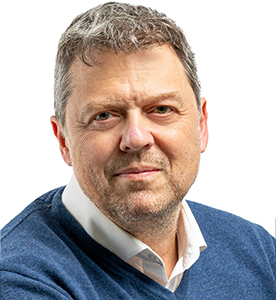
João F. Mano is a Full Professor at the Chemistry Department of University of Aveiro, Portugal, and vice-director of the Associate Laboratory CICECO – Aveiro Instituto of Materials, where he is directing the COMPASS Research Group (http://compass.web.ua.pt/). His research interests include the use of advanced biomaterials and cells towards the progress of multidisciplinary concepts to be employed in regenerative and personalised medicine. In particular, he has been applying biomimetic and nano/micro-technology approaches to polymer-based biomaterials and cell-rich systems to develop biomedical devices with improved structural and (multi-)functional properties, or in the engineering of microenvironments to control cell behaviour and organization, to be exploited clinically in advanced therapies or in drug screening. He is the Editor-in-Chief of Materials Today Bio (Elsevier). He has been coordinating or involved in many national and European research projects, including 2 Advanced Grants and 3 Proof-of-Concept Grants from the European Research Council. João F. Mano has received different honours and awards, including two honoris causa doctorates (Univ. of Lorraine and Utrecht Univ.) and was elected fellow of the European Academy of Sciences (FEurASc), Biomaterials Science & Engineering (FBSE) and American Institute of Medical and Biological Engineering (FAIMBE).
The human body as the source of biomaterials
Materials have been widely used in many Tissue Engineering (TE) solutions, as a structural support for adherent cells and as a vehicle to provide relevant biochemical and biophysical signals to control cell behavior. Different types of natural-based macromolecular materials have been proposed to prepare scaffolds for TE. We have been proposing the use of human-derived proteins that, upon chemical modification, could be used to generate adequate microenvironments to interact adequately with cells. We have selected two sources of such materials: (i) platelet lysates, containing mostly globular proteins including relevant growth factors with highly regenerative potential; and (ii) proteins from amniotic membrane or from the entire placenta, composed of fibrical proteins such as collagens and other compoents of the extra-cellular matrix. Due to their hydrophilic nature and richness in chemically active groups, these proteins can be chemical modified to generate materials with new or improved properties, while maintaining the biochemical features of human tissues. Hydrogels from these materials can be obtained from different crosslinking procedures, including photocrosslinking or supra-molecular assembly, to be used in a variety of forms, including injectable/bioprintable systems.
In a completely different viewpoint, we have been also leveraging the important role of the cells in the development of contructs for TE. Exploring human cells as materials precursors is an exciting conception to design living materials with adequate functional and structural properties similarly to what ensues in the human body. In our group we have been proposing possibilities of using lower relative amount of biomaterials in the hybrid constructs in order to assemble human cells in different geometries, including partially-coated cells, spherical aggregates (spheroids), fibres (fiberoids), membranes (cell-sheets) and cell-based hydrogels. Examples will be given on how bioengineered constructs could be obtained at different dimensional and length scales with such “materialized cells”.
Keywords : living materials, human proteins, hydrogels -
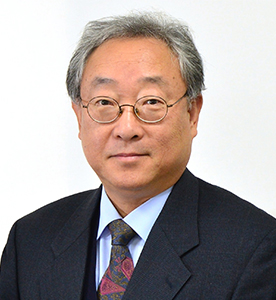
Dr. Ick Chan Kwon is a tenured Principal Research Scientist at the Korea Institute of Science and Technology (KIST), a Professor at Korea University (KU-KIST Graduate School), and an Affiliated Professor at the University of Washington Seattle (Department of Bioengineering). He is also a Presidential Scholar at the KIST-DFCI On-Site-Lab in the Dana Farber Cancer Institute (Department of Cancer Biology). He earned his B.S. and M.S. in Engineering from Seoul National University, as well as his Ph.D. in Pharmaceutics and Pharmaceutical Chemistry from the University of Utah. He joined KIST after completing his post-doctoral studies at the University of Utah's Center for Controlled Chemical Delivery, where he began his research on polymeric nanoparticle-based drug delivery systems for antibiotics, anticancer medicines, and gene therapy. By merging molecular imaging and drug delivery systems with smart nano-probes, he also pioneered in the field of Theragnosis research. He was the president of the Korean Society of Molecular Imaging and an editor for the Journal of Controlled Release in Asia (Elsevier). He is a senior member of Korea's National Academy of Engineering and a fellow of the Korean Academy of Science and Technology.
Design of Drug Delivery Guided by Molecular Imaging Technology
For decades, molecular imaging, capable of monitoring intercellular/intracellular molecular processes in organisms, has provided valuable information for a variety of research fields. Biomarkers such as enzymes, receptors, and proteins can provide information for early diagnosis of diseases and monitoring of therapeutic effects, and thus can be used as targets for molecular imaging. Among them, molecular imaging technology based on receptor-ligand interaction is emerging as a promising strategy for monitoring intractable diseases such as cancer. However, the basic requirement for this kind of imaging probe is to provide disease-specific information along with high imaging sensitivity. Here, we developed a self-quenching imaging probe capable of emitting fluorescence (activation) via a de-quenching reaction after internalization via receptor-ligand binding. Demonstrations of EGFR or CD47 target specific fluorescence signals will be presented in this presentation.
Keywords : drug delivery, molecular imaging
